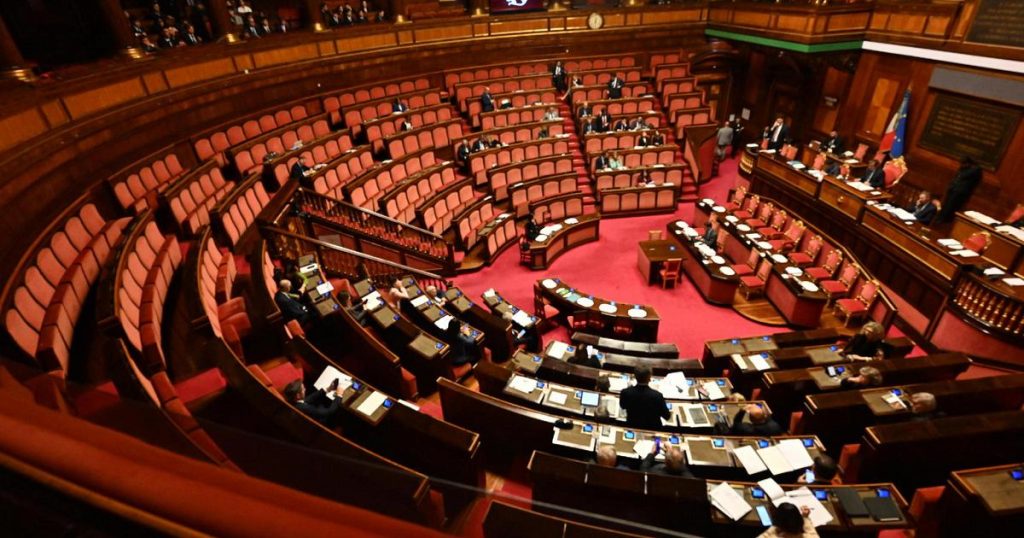Today afternoon, the Senate Chamber will conclude the general discussion on the direct election of the Prime Minister. The rapporteur Alberto Balboni and the Minister of Reforms Maria Elisabetta Casellati will respond to the questions posed by minority senators and by the two life senators Liliana Segre, who delivered a stern speech a week ago, and Elena Cattaneo. According to Casellati, many critical issues will be resolved in the electoral law, starting from the plurality prize that is constitutionalized in the bill without however providing for a minimum threshold, up to the issue of Italians abroad. This morning, the Minister, who participated in the fifth edition of the Meeting of Made in Italy organized by Aepi and Affaritaliani.it, told journalists: “I am elaborating the electoral law and will do it in the passage from the Senate to the Chamber, from the first reading in the Senate to the reading at the Chamber. It is not possible to enact an electoral law before a constitutional reform. The electoral law will be there.”
“This reform is based on two pillars,” Casellati said. “The first is the stability of governments. In the republican history, we have had 68 governments in 76 years with an average duration of 14 months. This instability has caused a lack of international credibility. Stability gives us credibility and attracts foreign investments, economic development, market confidence. The premierato is the reform of the second part of the Constitution, and it is not philosophical but concerns the real problems of the country.” In response to queries about possible role conflicts with the President of the Republic, as she has stated before, Casellati responded: “It is an absolutely false and misleading statement. It is not so. The roles of the President of the Republic and the elected Prime Minister are different. They move in two different directions that are not overlapping: the President of the Republic represents national unity, the values of the Constitution, and has a super partes role. The elected Prime Minister has a role of political direction.”
The majority was not present in the Chamber during the discussion, and the PD requested the convocation of the group leaders to understand why the majority decided to boycott the debate and not present amendments. This is perceived as a strong government will to move forward blindly. Francesco Boccia, the president of the PD senators, said in the Senate Chamber, asking President Ignazio La Russa to convene a conference of group leaders to decide how to proceed on the constitutional reform that includes the premierato. The opposition is willing to engage in substantive discussions on the reforms.
Casellati mentioned that many critical issues will be addressed in the electoral law, including the plurality prize and the representation of Italians abroad. She emphasized the need for stability in governments, citing the history of short-lived governments in the republic. The premierato reform is seen as a necessary step to address the real problems facing the country and improve international credibility, attract investments, and foster economic development. Casellati also clarified the differences in roles between the President of the Republic and the elected Prime Minister, dismissing claims of potential role conflicts.
The PD requested a meeting of group leaders to discuss the government’s decision to boycott the debate for the direct election of the Prime Minister. This move is perceived as a determination by the government to push forward without engaging in substantive discussions with the opposition. The opposition is willing to collaborate on the reforms and calls for a more inclusive and transparent process. The debate in the Senate Chamber is a crucial step in the process of constitutional reform and the establishment of the premierato, and it is essential that all parties are actively involved to ensure a fair and effective outcome.















